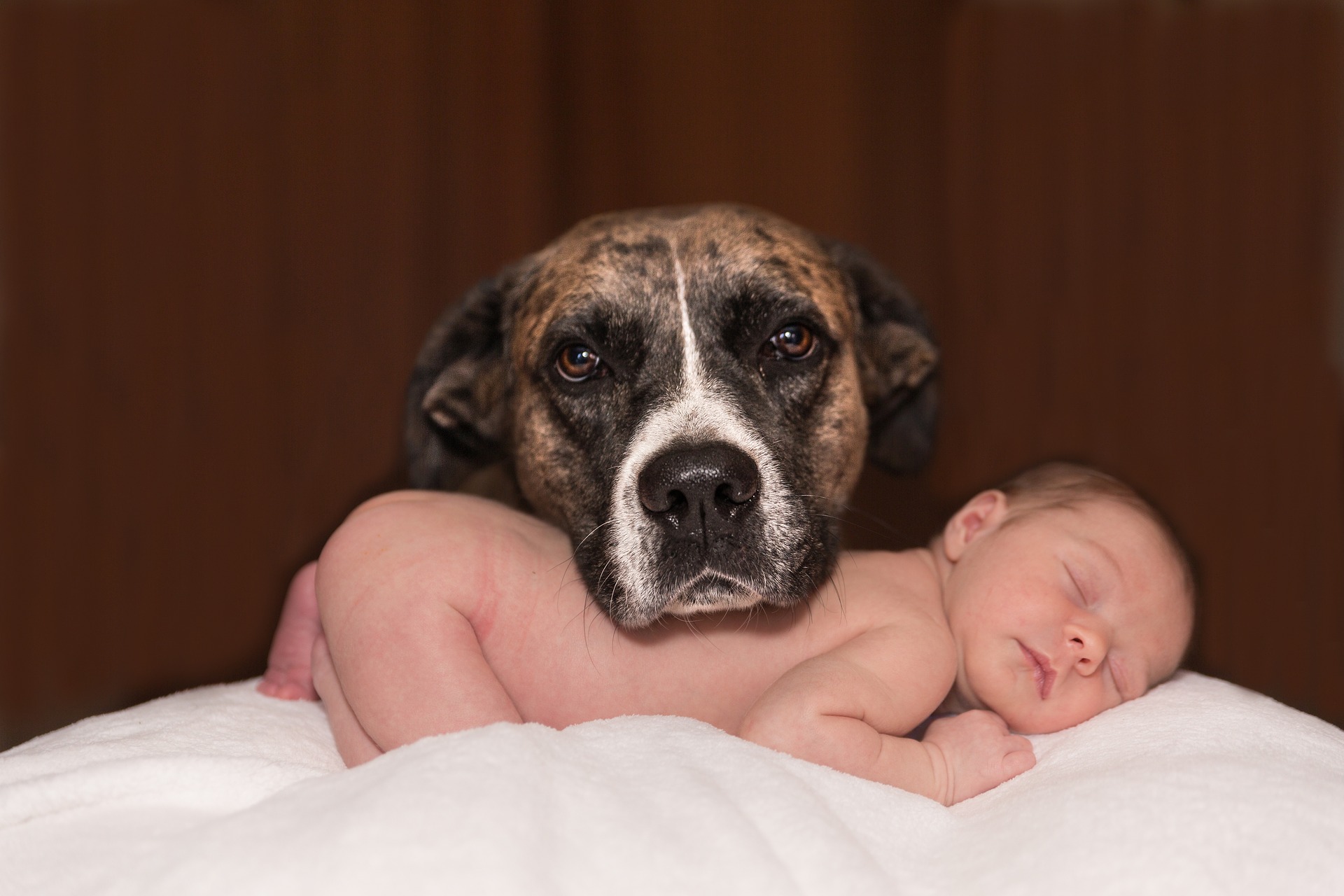Our dogs are very in tune with us, so with an event as monumental as a pregnancy, your dog has already sensed that something is up. But just because she has picked up on the new feelings hanging in the air, doesn’t mean that she understands what they mean.
When you bring home a new baby, what’s exciting for you and your spouse can be confusing and even frightening for your dog.
Think about it: That little baby seems like a human, but it smells, sounds, and moves like nothing your pet has ever seen before. And suddenly this strange, loud creature is taking up all of his owners’ time and attention.

Here are a few tips for preparing your dog for the new member of your family:
Four months before the baby arrives
Gradually introduce your dog to the new experiences, sights, sounds and smells she’ll encounter when you bring your baby home, and associate these new things with rewards. This will help your dog learn to love life with the baby.
One to two months before the baby arrives
Anticipate the changes you’ll make to your dog’s daily routine, and start making those changes.
Coming Home
When bringing your baby home from the hospital, send everyone else into the house first so your dog can express her usual excitement to see people. After she’s had a minute or two of greeting time and expends some of her energy, have someone leash her.
This is important, even if you have no reason to believe that she’ll react poorly to the baby. That person should also get some small treats ready to use during your dog’s first few moments with the baby. (It may help to prepare these treats in advance and keep them in a container near the front door).
It’s crucial to stay calm and relaxed when you and the baby enter the house. If you seem nervous and jumpy, your dog will pick up on your feelings and may become nervous as well, thinking that the bundle in your arms is something to worry about.
Instead, speak to your dog in a soft but cheerful voice as you walk into the house. Have your helper distract her with plenty of treats so that her attention is divided between them, your baby and the other people present. The helper can ask your dog to respond to obedience cues, like sit and down, using the treats to reward her polite behavior.
Praise your dog for any calm interest in the baby. Avoid scolding your dog. Remember, you want her to associate the baby with good things, not your displeasure.
Whether you choose to allow your dog to investigate the baby right away or to wait until a later time, orchestrate the event carefully.
Choose a quiet room, and sit down with the baby in your arms. Have a helper leash your dog and bring her into the room.
Again, avoid nervous or agitated behavior. Talk to your dog in a calm, happy voice as you invite her to approach. Convince her that meeting and interacting with her new friend is fun, not stressful.
Even if your dog seems curious and calm, you may feel a little nervous about letting her get close to the infant.
That’s normal for new parents and perfectly reasonable. Initially, you might feel most comfortable allowing only brief interactions. Let your dog sniff the baby’s feet for a couple of seconds.
Conclusion
Regardless of your strategy, remember that your dogs and babies generally bond quickly because dogs are instinctively protectors and gentle. I hope these dog training tips can help you to keep on loving life with your best friend.
And, if you’re reading this because you’re expecting – Congrats! 🙂




